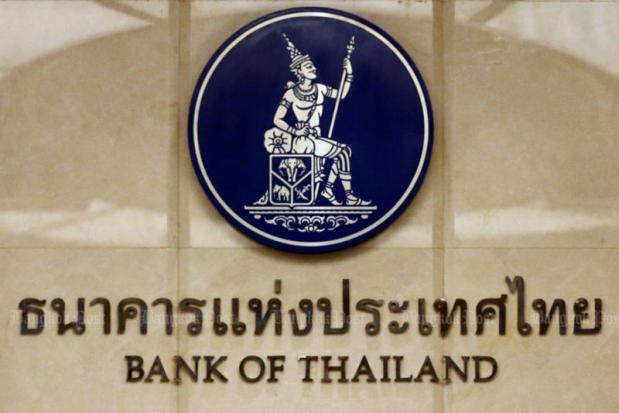Thailand: Central bank’s MPC predicts growth, with caveats
The Bank of Thailand’s rate-setting committee foresees further economic growth but is concerned over rising bad loans in the short term and search-for-yield behaviour increasing amid the low-interest-rate environment.
“The committee expressed concerns over the high level of non-performing loans (NPLs) that will remain elevated in the short term,” according to the minutes of the Monetary Policy Committee (MPC) from its Sept 27 meeting, released on Wednesday.
“This is because NPLs have been highly concentrated in some businesses, such as large firms in certain industries, where NPLs are unlikely to decline. NPLs of smaller businesses in the commercial sector, meanwhile, continue to rise. Thus, the committee sees the need to closely monitor the development of NPLs going forward.”
Bad loans from large businesses remain stable, while those of small- and medium-sized enterprises (SMEs) — particularly smaller businesses in the commercial, construction and industrial sectors — have picked up, reflecting an economic recovery that is not yet broad-based, the MPC said.
The divergence is partly because smaller businesses have confronted competitiveness challenges arising from constraints in adapting to structural economic changes, such as the increasing role of technology in business operations.
The minutes said that commercial bank loan growth had increased but was concentrated in certain businesses.
SME loans gradually increased but were concentrated in the manufacturing, real estate and public utility sectors, while consumer loans expanded across the board, the MPC said.
At last month’s meeting, the MPC unanimously left the policy rate on hold at 1.5% — the rate that has been in place since April 2015 — saying that the current rate suits the economic environment.
The panel also raised its economic growth forecasts to 3.8% for this year and next, increases from 3.5% and 3.7%, respectively, largely because of better than expected growth in the second quarter and robust exports.
The minutes said that overall financial stability remained sound, but there remained pockets of risks that might result in the build-up of vulnerabilities in the financial system going forward, which continue to warrant close monitoring.
These in particular include rising search-for-yield behaviour in a low-interest-rate environment, together with other financial stability problems, especially those stemming from regulatory gaps.
The committee said headline inflation is expected to edge up in 2018 after a recovery in domestic demand and an excise tax hike.
Nevertheless, inflation will rise at a slower pace than in the past because of structural factors. These include the increasing role of modern trade and e-commerce, together with competition in global trade.
The committee said it would monitor the implications of structural changes for inflation dynamics as well as monetary policy conduct.
Some committee members said that the effects of a policy rate cut in terms of increasing inflationary pressure and fostering the return of headline inflation to a targeted level would be limited, as low inflation was caused by supply-side and structural factors.
Financial conditions have remained accommodating for extended periods and have not posed any difficulties for investment, according to entrepreneurs.
Moreover, debt accumulated by low-income households remained elevated and might limit their leveraging ability despite falling borrowing costs.
Lower interest rates might also induce medium- and high-income households, which mostly hold bank deposits, to enhance returns by investing in riskier assets instead of increasing consumption.
Source: https://www.bangkokpost.com/business/news/1341123/central-banks-mpc-predicts-growth-with-caveats


 Thailand
Thailand




